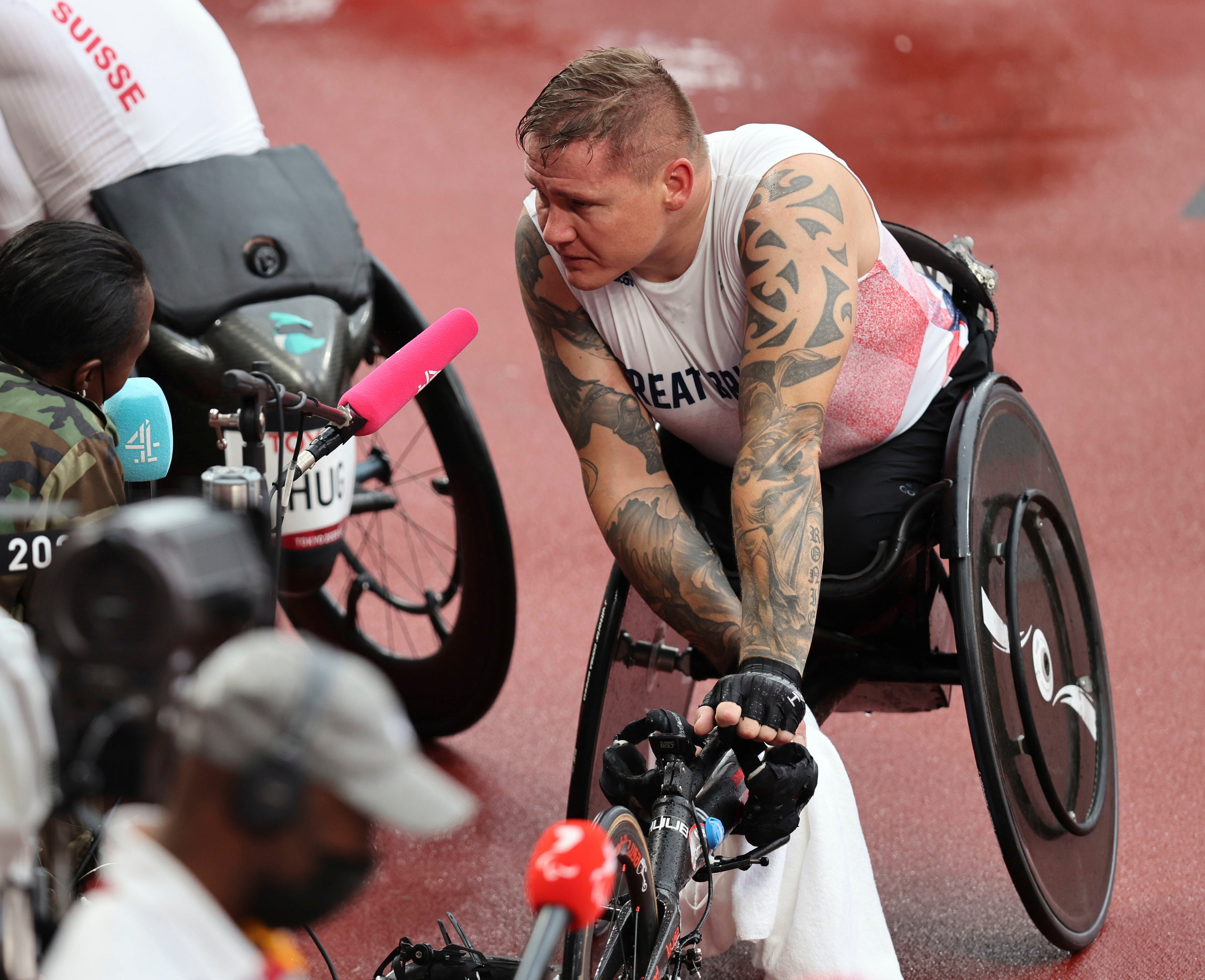‘We are sick of being second best’: David Weir challenges authorities to do more for para-sport
After finishing fifth in the Paralympic marathon, the Weirwolf let rip on the parlous state of his sport

Your support helps us to tell the story
From reproductive rights to climate change to Big Tech, The Independent is on the ground when the story is developing. Whether it's investigating the financials of Elon Musk's pro-Trump PAC or producing our latest documentary, 'The A Word', which shines a light on the American women fighting for reproductive rights, we know how important it is to parse out the facts from the messaging.
At such a critical moment in US history, we need reporters on the ground. Your donation allows us to keep sending journalists to speak to both sides of the story.
The Independent is trusted by Americans across the entire political spectrum. And unlike many other quality news outlets, we choose not to lock Americans out of our reporting and analysis with paywalls. We believe quality journalism should be available to everyone, paid for by those who can afford it.
Your support makes all the difference.David Weir is “sick of being second best” and challenged Sebastian Coe to a fight for the future of para-athletics.
Britain’s three top track stars – Weir, Jonnie Peacock and Hannah Cockroft – have repeatedly raised issues of unequal pay, poor promotion and a lack of tech investment in Tokyo.
After finishing fifth in the Paralympic marathon, the Weirwolf let rip on the parlous state of his sport and now wants World Athletics, of which Coe is president, to intervene.
Along with swimming, para-athletics is reluctantly governed by the International Paralympic Committee (IPC) who in July openly invited interest in taking it off their hands.
“We are sick of being second best and we deserve more,” said six-time Paralympic champion Weir, 42. “That is what I’m going to fight for now, I am going to keep pushing and knocking on the door.
“UK Sport don’t talk to the athletes, they need to talk to us more and when we get back, they will listen.
“I want to see us in the Diamond League. I want Seb Coe to sit down with the top Paralympians because the IPC are not doing enough to promote us.
“The prize money isn’t equal but we are fighting, we are telling them. We do 26.2 miles, you wouldn’t pay different to men and women – so why not us?
“A lot of the public think we get the same money as Mo Farah and the top athletes. I just want it for the next generation – we don’t get deals off Nike or the big companies. This is our income.”
The issues are systemic and intertwined, with Peacock taking aim at the inequality in Diamond League prize money having received £500 at events where Olympians were paid up to £30,000.
Cockroft created a storm by revealing that while they received medal bonus in London and Rio, para-athletes were not given a cent for podium places in Tokyo.
That came after Team USA announced Paralympian and Olympians would both get the same golden handshake of £25,600.
Weir’s single biggest gripe is with a lack of British investment in racing chairs stretching back a decade and he watched Swiss athlete Marcel Hug speed to a marathon gold in a state-of-the-art chair.
While Hug has been testing and tweaking his vessel for five years, Weir only received his chair five months before winning gold at London 2012 and things have not improved in the past nine years.
“As you can see the technology is getting better and we need the help if you want to see the next generation come through,” said Weir.

“I have my academy but we can only do so much. It has to start from grassroots and building and building from there.
“As you see, I am not going to win a medal probably ever again. You have to see the next generation coming through.”
Weir, Peacock and Cockroft have clearly lost faith in official channels and now aim to leverage their media profile to raise ongoing issues.
All three were stars of London 2012 and while young athletes bear witness to the legacy of the home Games, the elders of the sport have had enough.
“I have had messages saying that: ‘you’re being heard’, which is a start,” said Weir. “Someone was asked the question on BBC Breakfast the other morning about investment in wheelchair racing.
“I hope people are listening because have been fighting for five years. I have been talking to them for five years, there wasn’t the interest in it then. I just pray for the next generation. We need a little bit of help.”
Sainsbury’s is a proud supporter of ParalympicsGB and a champion of inclusive sport for all. Sainsbury’s commitment to helping customers to eat better has been at the heart of what we do since 1869. For more information on Sainsbury’s visit www.sainsburys.co.uk/ and https://paralympics.org.uk/
Join our commenting forum
Join thought-provoking conversations, follow other Independent readers and see their replies
Comments